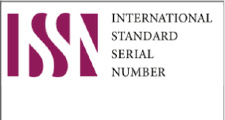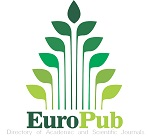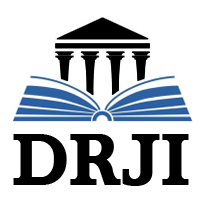عثمانی ترک ادب: ایک تاریخی اور ادبی جائزہ UthmānTurkish Literature: A Historical and Literary Overview
Keywords:
Uthmān, Turkish Literature, Persian Influence, Western Influence, Classical LiteratureAbstract
This paper provides an overview of Ottoman Turkish literature, tracing its origins and development. Ottoman literature, much like their culture, was heavily influenced by Persian traditions, introduced to them through the Seljuk Turks who established the Seljuk Empire. The literary styles, themes, and structures of Ottoman and Persian literature share significant similarities, particularly in poetry, which is a dominant form in both traditions. Ottoman poetry, characterized by its ornate language, exaggeration, and emotional expressiveness, often centers on themes of love, nature, and spirituality. However, it lacks the epic war poetry commonly found in Persian literature. The study also highlights key figures in early Ottoman literature, including poets like Ghazi Fazil, who accompanied Prince Suleiman in the European campaigns and composed symbolic poetry about these conflicts. The paper discusses the contributions of poets from different periods, such as Sultan Selim I, who, despite being a formidable ruler, was also an accomplished poet primarily writing in Persian. Fuzuli, a prominent figure in Ottoman literature, is noted for his innovative approach, combining the influences of Persian and Arabic poetry while maintaining a distinct Turkish voice. His work exemplifies a deep emotional intensity and sincerity, particularly in his famous “Leyla and Majnun” narrative.
The influence of French literature in the 19th century brought significant changes to Ottoman literature, leading to the decline of classical styles and the introduction of new genres, including drama and modern poetry forms. The impact of these Western influences marked the end of the classical Ottoman literary era and the beginning of a new phase characterized by simplicity, realism, and a focus on contemporary themes.
Downloads
References
ابراہیم، ناظم ، فضولی، ویاشرگارا مطبوعہ، وزارت خارجہ ترکیہ، انقرہ، 1996۔
Ibrahim, Nazım, Fuzuli, Viyaşergara Matbu'a, Vezaret-i Hariciye-i Türkiye, Ankara, 1996.
اسٹینلے ایڈورڈ لین پول، ترکی، ڈارف پبلیشرز، لندن، 1986ء۔
Stanley Edward Lane-Poole, Türkiye, Darf Publishers, London, 1986.
حافظ عامر علی، سلاطینِ سلاجقہ روم کے غیر مسلم رعایا بارے مذہبی رجحانات، انکشاف، 3/9، (2023)، ص 381۔ 357۔
Hafiz Amir Ali, "Salatin-e Seljuq-e Rum ke Ghair Muslim Riaaya Bare Mazhabi Rujhanat," Inkishaf, 3/9 (2023), s. 381-357.
درقون، رجب – علی، حافظ عامر، وسیلۃ النجاۃ، پاک ٹی ایم پرنٹرز، فیصل آباد، 2022۔
Rajaq Darqun – Hafiz Amir Ali, Waseelat al-Najat, Pak T.M. Printers, Faisalabad, 2022.
کشنز، ڈیوڈ ، دی رائز آف ٹرکش نیشنلزم، فرینک کمپنی، لندن، 1977۔
Kishans, David, The Rise of Turkish Nationalism, Frank Company, London, 1977
عثمانی ترک ادب: ایک تاریخی اور ادبی جائزہ، ایم۔ شکری حان اوغلو، پبلشر: راؤٹلیج، اشاعت: 2001
"Ottoman Turkish Literature: A Historical and Literary Overview" M. Şükrü Hanioğlu Publisher, Routledge, 2001






















